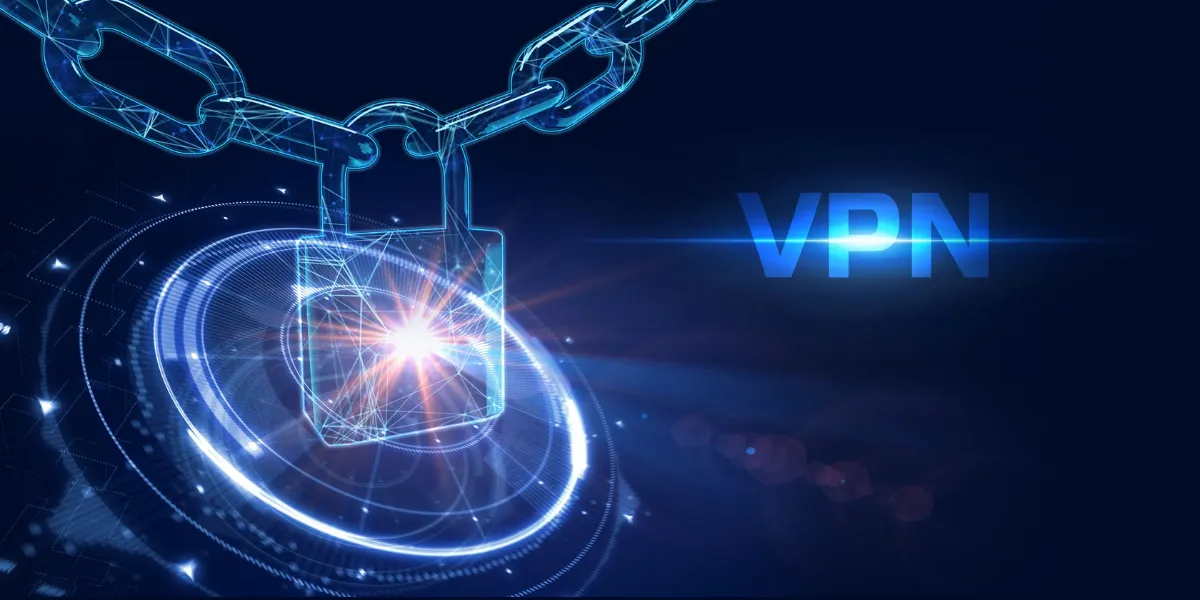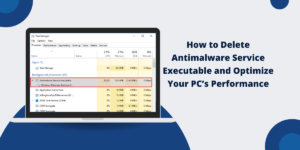VPNs protect remote workers through their integrated security features which safeguard their online operations.
Remote work has established itself as the new normal for millions of workers across the globe, yet this change exposes them to more security dangers. The main targets of cybercriminals include networks that lack protection and public Wi-Fi networks that are not secure as well as systems with inadequate authentication measures. A Virtual Private Network (VPN) functions as an effective security tool which defends remote workers together with their business data.
The research examines VPN security benefits for remote workers through an analysis of their essential role in modern digital operations and provides guidelines for implementing corporate VPN systems.
Why Remote Workers Face Higher Security Risks
Remote workers face increased security risks because of their remote work setup.
Remote workers establish their connections through networks that exist beyond standard office network firewalls. The following risks will become more severe when there are no adequate protective measures in place.
- Unsecured Wi-Fi networks can be found at public locations such as cafes and airports and co-working spaces.
- Data interception during transfers between devices and servers.
- Phishing attacks that exploit weak connections or compromised credentials.
- Shadow IT occurs when employees implement unauthorized applications which lack sufficient encryption security measures.
The security risks that exist in these systems require users to establish VPN connections for their remote work activities.
How VPNs Protect Remote Workers
VPNs operate as protective systems which safeguard remote workers. A VPN ensures a safe, encrypted connection between the user and corporate systems.
Key benefits include:
Encrypted Data Transmission
VPNs encrypt data through code scrambling which safeguards personal files and financial information and email communications from being intercepted.
Secure Access to Company Resources
Remote workers can access corporate servers and intranets and productivity tools through a private tunnel which helps minimize unauthorized access risks.
IP Address Masking
VPNs protect user privacy because they hide IP addresses which stops hackers from monitoring user activities and launch specific cyber-attacks.
Protection on Public Wi-Fi
Secure encryption protects employees who use open networks because it stops unauthorized parties from accessing their passwords and sensitive files.
Business Advantages of VPNs in Remote Work
Organizations that implement VPNs gain long-lasting benefits which reach further than protecting individual users.
- The organization must follow all data protection regulations which include GDPR and HIPAA and PCI DSS.
- The organization saw fewer cybersecurity incidents which led to decreased costs from data breaches.
- Employee Productivity via seamless, uninterrupted access to corporate tools.
- The system includes a centralized IT Management system that oversees and controls all remote connections.
Best VPNs for Remote Worker Security
1. NordVPN
Remote workers can use NordVPN to get fast secure protection with many useful features. The service provides top encryption standards and complete data privacy through its no-logs policy and its built-in kill switch and threat protection features.
- AES-256 encryption and threat protection built-in.
- The service has a no-logs policy which has received independent audits for verification.
- The kill switch function protects users from unintentional data exposure.
- The service operates through 7,200+ servers which span across 118+ countries.
- The service includes multi-hop and obfuscated servers which provide enhanced privacy features.
2. Surfshark
The VPN service Surfshark offers budget-friendly unlimited device protection to remote teams and individuals through its advanced privacy features and robust encryption system. The service provides budget-friendly plans together with unlimited connection capabilities.
- Unlimited devices per subscription
- AES-256 encryption and Clean WEB (ad and malware blocking)
- The MultiHop feature enables users to route their traffic through multiple countries.
- The service includes a kill switch and maintains complete logging transparency.
- The service operates through 3,200+ servers which span across 100+ countries.
3. ExpressVPN
The service stands out because of its fast speeds and powerful privacy features and user-friendly interface. Remote workers can use ExpressVPN to get automatic kill switch protection and secure protocols and a complete no-logs policy.
- The TrustedServer technology operates on RAM-only servers which perform clean reboots.
- The service operates through 3,000+ servers which span across 100+ countries.
- The service protects users through 256-bit encryption and DNS/IPv6 leak protection.
- Users can manage their network traffic through the split tunneling feature which allows them to select specific data streams.
- The service maintains continuous customer support throughout 24 hours.
Best Practices for VPN Deployment
Businesses need to implement these security measures to achieve their maximum level of protection.
- Choose a reputable enterprise VPN provider with strong encryption (AES-256).
- The system needs to use multi-factor authentication (MFA) which functions together with VPN access for security purposes.
- Users need to run VPN software updates on a regular basis to address security vulnerabilities.
- Educate employees on safe usage policies and phishing awareness.
- Monitor logs to detect unusual login patterns.
Future of VPNs in a Hybrid Workforce
VPNs will function as a vital component for hybrid work environments which unite remote work with traditional office settings in the upcoming years.
Organizations that choose hybrid work models will need to keep developing their VPN systems on an ongoing basis. Modern organizations use VPNs in combination with Zero Trust Network Access (ZTNA) to verify employee identities before allowing access to all network entry points. AI-powered security monitoring systems and encryption technologies will keep VPNs necessary for protecting remote teams because of their ongoing importance.
Key Takeaway
Remote workers must use VPNs because they represent an absolute necessity for their work. The tools protect data privacy while helping organizations meet their regulatory needs and operate their business from a distance. Organizations need to use VPNs together with employee training and sophisticated security measures to defend against cyber threats.
FAQs: VPNs and Remote Work Security
Do I need a VPN when working from home?
Yes. Your data stays encrypted while your IP address stays hidden when you use VPN to connect to your home Wi-Fi network. The additional security measure protects users from hacking attempts as well as ISP interference and malware threats that could target shared devices.
How do VPNs prevent data breaches?
VPNs function as a protective measure against data breaches through their encryption process. The encryption process of a VPN protects all internet traffic between your device and the internet so that intercepted data becomes impossible to read. The encryption process of a VPN protects your login credentials and financial information and sensitive files from cybercriminals.
Is a free VPN safe for remote workers?
Free VPNs provide weak encryption, and they track user activities to generate advertising revenue. Businesses together with their employees need to pick VPN providers that have no-logs policies because these policies deliver vital security for remote work operations.
Can VPNs protect me on public Wi-Fi?
Yes. Public Wi-Fi networks located in cafes and airports and hotels present significant security risks because they can be easily targeted by man-in-the-middle attacks. A VPN establishes an encrypted tunnel which protects your connection from exposure when using unsecured hotspots.
Do VPNs slow down internet speed?
Sometimes. The encryption process used by VPNs leads to a minor decrease in internet speed. Premium VPNs use optimized servers and high bandwidth to deliver secure connections without significant performance degradation.
How do businesses ensure secure VPN use for remote workers?
Businesses need to use enterprise VPN solutions which include:
- Multi-factor authentication
- Centralized monitoring
- Regular software updates
- Employee awareness training
What is the difference between a VPN and Zero Trust Network Access (ZTNA)?
A VPN protects network access for users, but ZTNA continuously authenticates users to grant access to particular applications. Businesses across the market sector have started to implement VPNs together with ZTNA for better security measures.

Priya Mervana
 Verified Web Security Experts
Verified Web Security Experts
Priya Mervana is working at SSLInsights.com as a web security expert with over 10 years of experience writing about encryption, SSL certificates, and online privacy. She aims to make complex security topics easily understandable for everyday internet users.



